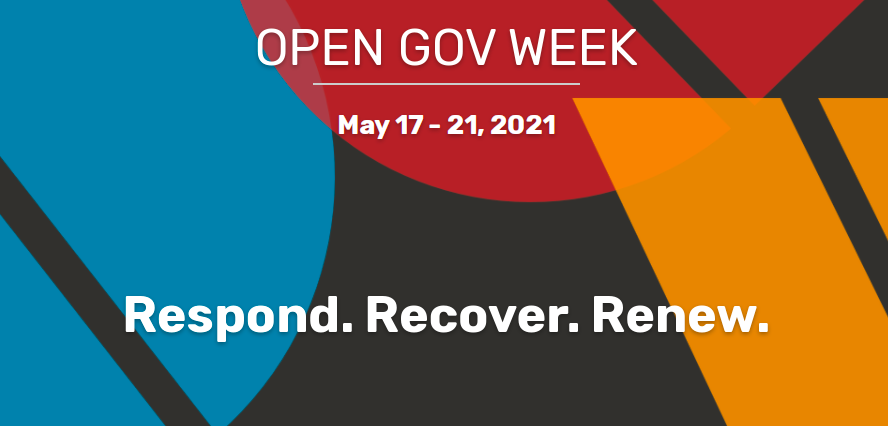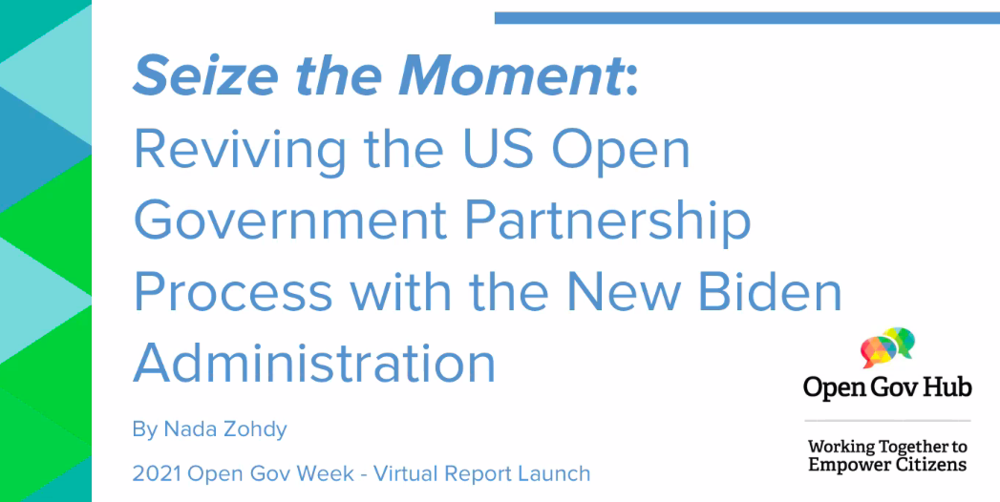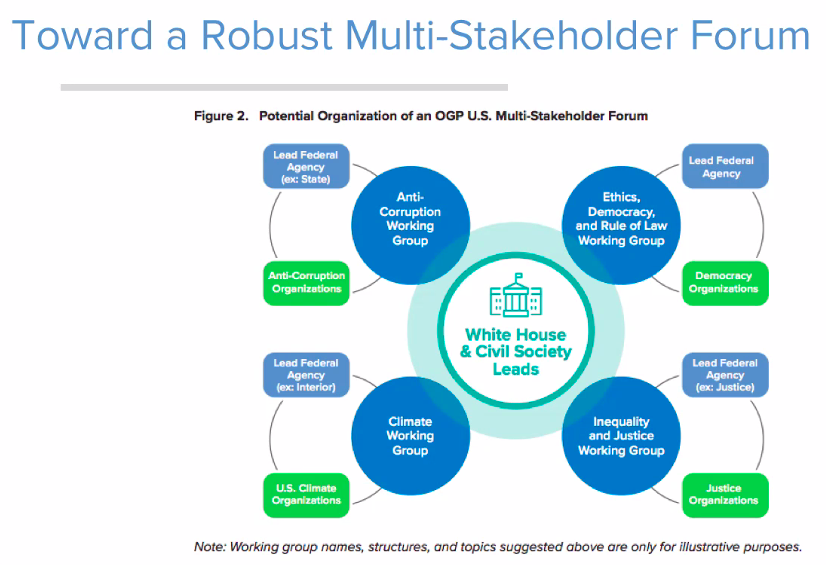Open Gov Week 2021
Seizing the Moment for OGP US

As part of Open Gov Week 2021, OGP hosted "Seize the Moment: How to Revive the US OGP Process with the New Biden Administration."
OGP's Joe Powell opened the discussion, pointing out this is the 15th year of decline in open government principles across the globe, exacerbated by covid, economic, racial justice, and climate crises felt on a global scale, and the United States in particular has suffered from backsliding in OGP principles and values.
Denisse Miranda, head of OGP's Independent Reporting Mechanism, followed with background on US participation. The Obama administration created the first US plan. Since then, the US has submitted 4 action plans, with 109 commitments. The most recent US plan is the least robust. US performance is on decline, and the real challenge has been meaningful co-creation and society participation -- broader groups, thematic areas, and using approaches that ensure input results in feedback and how they shaped decision making.
What does this mean for open government in the United States? What will "building back better" mean for the United States' OGP Program?
Nada Zohdy, consultant to OGP and head of Open Gov Hub, then shared research findings on how the United States can improve. "Seize the Moment" is a new report released today, addressing this very question.

OGP summarizes America's road to reform as OPALS:
- Ownership: White House leadership. Best positioned to link international and domestic efforts, while legitimizing efforts and leading collaboration.
- Participation: broadening and diversifying. Move beyond the "usual suspects" of good governance groups and add geographic, thematic, and gender diversity.
- Ambition: new reforms for national priorities. Action plans with new commitments linked to top national priorities, including "early win" commitments.
- Looped Feedback: ongoing joint work. Follow through on mutual interests.
- Synchronization: linking local and global priorities. This is key for the US to return to a role of international leadership.

In addition, recommended policy priority areas going forward include core democracy reforms; disclosure and declassification; regulating technology/generating usable data (algorithms, AI, etc.); criminal justice/access to justice; and better implementation of international commitments.
Lisa Rosenburg and Liz Hempowicz with Project on Government Oversight (POGO) underscored the importance of stakeholder inclusion. POGO is looking for early true participation and OGP staff in the White House.
Philip Ashlock with the United States OGP team addressed these rich insights. As OGP government staff since 2013, he now manages a portfolio of commitments including data.gov supporting the Open Government Data Act.
The new Biden administration has committed to new attention to OGP and international leadership, including a Summit for Democracy in 2021. President Biden himself wants the United States to lead not by the example of our power, but the power of our example. Stay tuned for bold new approaches for OGP US.
Austin, Texas has been a member of OGP since 2016. Find out more at https://www.opengovpartnership.org/members/austin-united-states/

